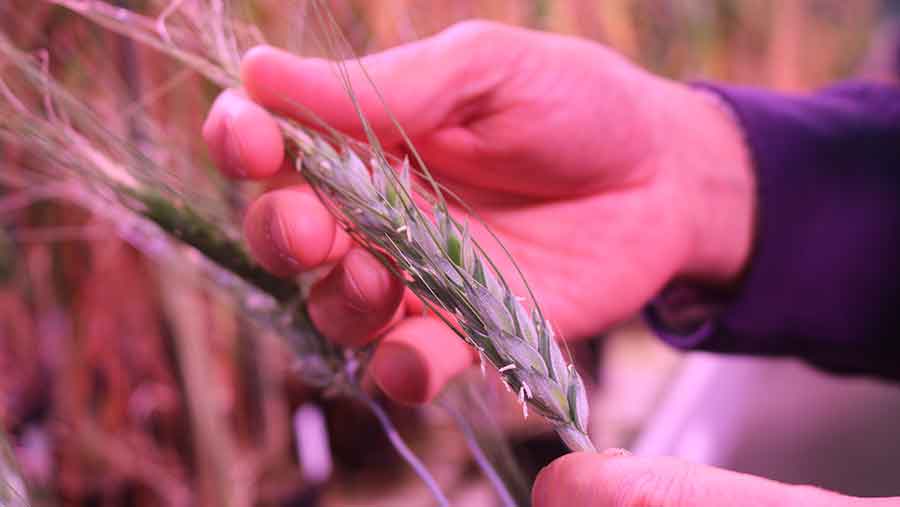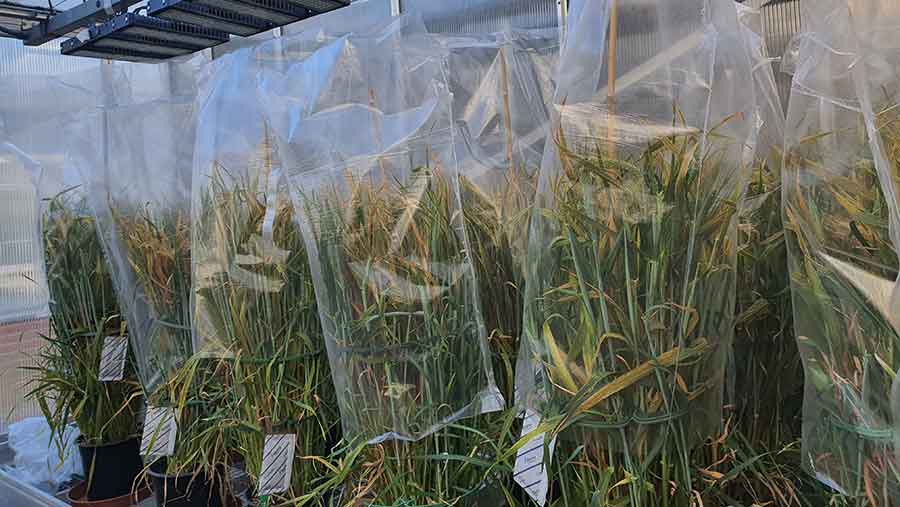English farmers plan to be first to grow gene-edited crops
 © Bofin
© Bofin An Oxfordshire grower is pioneering a project to grow the first gene-edited crops on commercial farms in Europe.
The British On-Farm Innovation Network (Bofin) is planning to multiply enough seed for on-farm trials of gene-edited crops that will take place in the 2025-26 growing season.
The trials will consist of the first three cereal cultivars in the UK that have been edited to have novel traits.
See also: First gene-edited wheat field trial successful, say scientists
The first trial will involve Cadenza gene-edited wheat, developed by Prof Nigel Halford at Rothamsted Research.
It has low levels of the natural amino acid asparagine which, when baked or toasted at high temperatures, is converted into acrylamide, which is classed as a probable carcinogen.
The second trait, in spring wheat Fielder, brings about a higher thousand grain weight and has been developed by Prof Christobal Uauy at the John Innes Centre, Norwich.
The third trait is in Golden Promise barley that produces high-lipid fodder.
Developed by Prof Peter Eastmond at Rothamsted, the fodder will be fed to dairy cows to see if it increases energy values of dry matter (DM) by an expected 0.5MJ/kg.

High-lipid Golden Promise © Bofin
Twenty-five farms
Bofin plans to involve up to 25 farms in England to grow these crops.
Tom Allen-Stevens, who heads up Bofin, has set up the platform to bring novel gene-edited traits, also known as new genomic technologies (NGTs), in a pre-commercial environment onto UK farms to see how they perform.
Mr Allen-Stevens, an arable farmer based in Faringdon, Oxfordshire, said up to 1kg of each of the three cultivars has been developed.
The plan is to multiply this to produce 100t of each line at harvest 2026.
“Our aim is to develop an understanding of how these crops perform in a trusted and open environment,” he told Farmers Weekly.
“We believe these will be the first ever gene-edited crops to be grown on commercial farms across the UK and Europe.
“We have also identified about a dozen more gene-edited traits which we plan to bring through the platform following on from these initial lines in subsequent years.”
England-only ruling
The opportunity to grow gene-edited crops in England follows the enactment of the Genetic Technology (Precision Breeding) Bill in 2023.
The legal change applies in England only and devolved governments have yet to follow suit.
Similar legislation on NGTs has recently passed through the European Parliament, but it has yet to be adopted in any EU member states.
